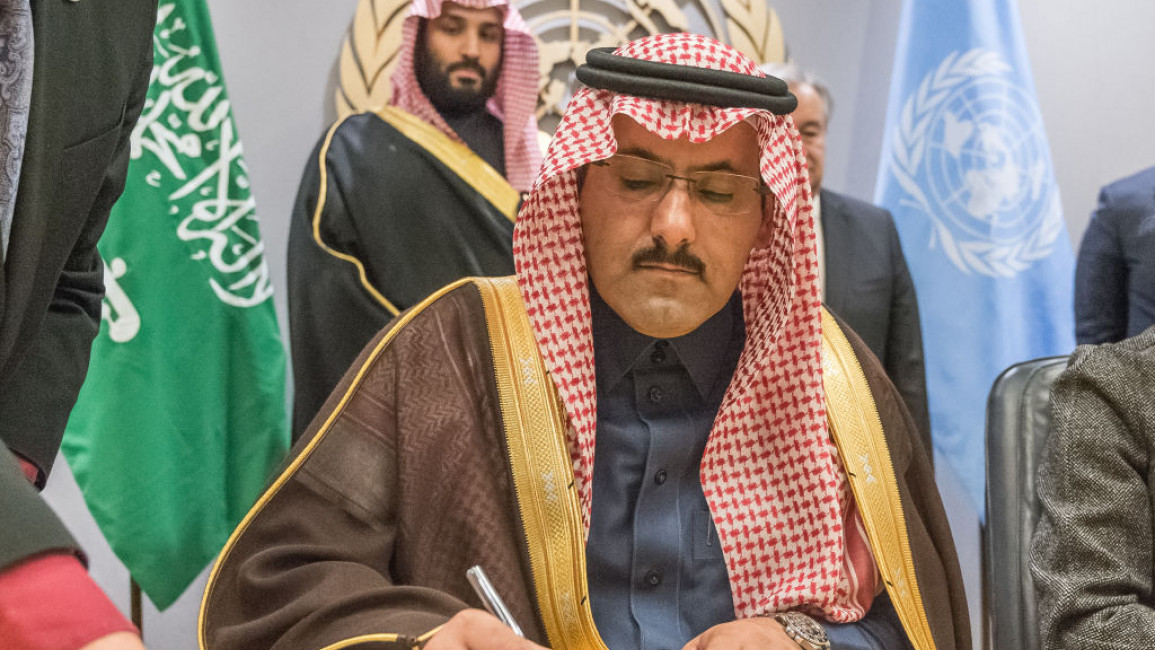Yemen: Saudi envoy travels to Sanaa to 'stabilise' truce with Houthi rebels
Saudi Arabia's ambassador to Yemen said on Monday he had travelled to the country's rebel-held capital to strengthen a truce and push dialogue that could end the country's eight-year-old war.
The Saudi delegation's visit to Sanaa is part of a flurry of diplomatic activity to end the conflict pitting the Iran-backed Houthis against a Saudi-led coalition supporting the internationally recognised government.
"I visit Sanaa along with a delegation from the brotherly Sultanate of Oman to stabilise the truce and ceasefire," Mohammed Al-Jaber said on Twitter in the first official comment from Saudi authorities about the trip.
He added that he also wants to "support the prisoner exchange process and explore venues of dialogue between Yemeni components to reach a sustainable, comprehensive political solution."
1️⃣ Continuing the Kingdom’s efforts to end the Yemeni crisis, and in support the Saudi Initiative of 2021 to reach a comprehensive political solution in Yemen, I visit Sana’a along with a delegation from the brotherly Sultanate of Oman to stabilize the truce and ceasefire,… pic.twitter.com/xqPty81Ds9
— محمد ال جابر (@mohdsalj) April 10, 2023
A truce announced roughly a year ago has significantly reduced active hostilities within Yemen, and is still largely respected even though it officially expired in October.
A Yemeni government source, speaking to AFP on condition of anonymity, said at the weekend that the Saudis and Houthis had agreed in principle on a new six-month truce to pave the way for talks on establishing a two-year "transition".
On Sunday, Houthi media showed Al-Jaber shaking hands with the rebels' political chief, Mahdi al-Mashat.
Houthi officials said on Monday that Al-Jaber also met with the Houthis' leader, Abdulmalik al-Houthi, though Saudi officials did not confirm this.
Saudi officials have not provided details or responded to requests for comment about the meetings in Sanaa, which the Houthis seized in 2014, prompting the Saudi-led intervention the following year.
A surprise rapprochement between Saudi Arabia and Iran, brokered by China and announced a month ago, has fuelled hopes for a cessation of fighting that has claimed hundreds of thousands of lives and triggered what the United Nations has called the world's worst humanitarian crisis.
A Saudi official told reporters last month that talks with Iran in Beijing yielded "concrete commitments" on Yemen and that Riyadh hoped the rapprochement could make a breakthrough on ending the war more attainable.
Specifically, the Saudis have demanded that Iran stop "supplying the Houthis with weapons", the official said.
Before last year's truce went into effect, Saudi Arabia had suffered repeated cross-border attacks, several of which targeted oil facilities in the word's biggest crude exporter.
The talks with the Houthis indicate that Riyadh's "strategic priority is border de-escalation with the Houthis, not the building of long lasting de-escalation between warring parties in Yemen, something that still looks... very complex," said Eleonora Ardemagni, an expert on Yemen at the Italian Institute for International Political Studies.
The Houthis, for their part, can "show the political strength... they have gained so far" while reinforcing their position ahead of any Yemeni-Yemeni talks, she added.
A deal on a new truce is expected to fulfil key Houthi goals, including paying salaries of civil servants in Houthi-controlled areas and lifting operational restrictions on Houthi-controlled airports and ports.



